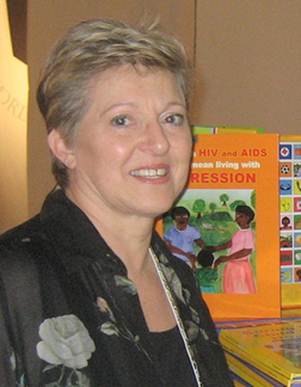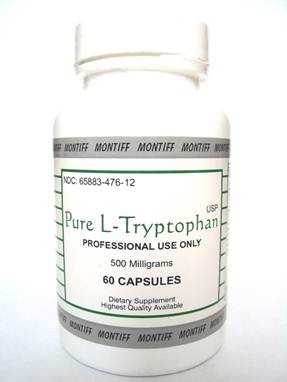Antidepressants: 4 things you should know first
1. Consider
a second opinion
Should you accept a prescription from your GP, or is it
safer to ask for a referral? It depends. "If you've known your GP for
years and he or she is knowledgeable about mental health issues, you may feel
more comfortable," says Zane Wilson, founder of the South African
Depression and Anxiety Group (SADAG). "But it's advisable to see a
psychiatrist and to have the necessary tests to rule out other causes for your
symptoms."

Zane Wilson,
founder of the South African Depression and Anxiety Group (SADAG)
2. Don't go
mixing
Check with your doctor and pharmacist if any of your current
medication clashes (is "contraindicated") with the antidepressant. Be
sure to include non-prescription and natural remedies on your list. Wilson
offers a common example: "Never use St John's Wort with an antidepressant
- it can be dangerous."
3. Stay the
course
"Generally, it's advisable to be on antidepressants for
at least six months — preferably a year," says Wilson. "This gives
your body a chance to adapt to the meds properly." If the side effects
bother you, speak to your doctor. Keep going back until you're satisfied your
prescription is a good fit.
4. No cold
turkey
"Never stop taking medication without talking to your
prescribing doctor," stresses Wilson. "You should be weaned off the
medication gradually. It's important that your doctor and therapist monitor
your progress continually — treatment and length of treatment is very
individual."
‘Women juggle many roles – leaving them little or no time
for themselves’ – ZANE WILSON, FOUNDER OF SADAG
The talking cure

While studies show that therapy (alone) can be as effective
as antidepressants (alone) in treating depression, Mahony agrees with Wilson
that the best strategy is usually a combination of the two. Grobbelaar goes a
step further: "Find a skilled psychologist and psychiatrist who
collaborate to provide a continuum of care."
So which type of therapy is best for depression?
"Cognitive Behavior Therapy (CBT) has the greatest measured success
rate," says Mahony. It's a short-term approach that targets the thought
pat-terns and core beliefs that contribute to depression. It's sometimes criticized,
however, for neglecting the underlying issues — as if we can cure depression
simply by changing our thoughts.
Dynamic psychotherapy is a more in-depth, longer-term
approach that looks for the meaning behind behavioral patterns. "Many
therapists may have a dynamic approach but incorporate CBT techniques where
indicated, whereas others are strictly CBT," explains Grobbelaar.
"If you're not comfortable with the approach of your therapist, say so. If
it's simply not a good fit, change therapists!"
This rings true for Nomonde*, 40, a musician from Joburg who
started seeing a psychologist during a serious bout of postnatal depression.
"It wasn't a quick fix,' she admits. "But just speaking to someone
who never made me feel guilty or told me to 'pull myself together' was enough
to make a difference"
"There's increasing evidence that it's not the form of
therapy that determines the success rate, but rather the relationship
Cape Town homeopath Dr Craig Wright agrees that many people
are, indeed, overmedicated and undereducated.
Beyond Freud and PROZAC

Antidepressants and psychotherapy are the best-known
treatments for depression, but they're by no means the only options. When her
symptoms recurred for the third time in five years, Ashleigh*, 35, a full-time
mom from Cape Town, didn't want to go back on antidepressants.
A friend suggested she try L-Tryptophan (available in health
stores without a prescription). It's an essential amino acid that occurs
naturally in certain foods but is not manufactured by the body, explains Cape
Town naturopath Dr Sandi Nye.
"L-Tryptophan is the precursor to 5- Hydroxytryptophan
[5-HTP], which is, in turn, the precursor to serotonin.
"However, the body needs other nutrients to metabolize
it, so if you have a nutritional deficiency, it's not likely to provide optimal
benefits. Selective serotonin re-uptake inhibitors [SSRls] are very popular
prescription drugs for increasing serotonin levels in the brain.
"But naturopathically, it makes more sense to provide
the body with the tools it needs to make more serotonin. In other words, to
make it rather than mimic it"
"The results," reports Ashleigh, "are as good
— if not better — than any anti-depressants I've used."
1. St John’s
Wort
One alternative treatment that's had considerable press is
St John's Wort, an herbal remedy made from a humble yellow wildflower. Back in
1998, the SA-born psychiatrist Norman Rosenthal enthusiastically endorsed the
plant in his book St John's Wort: The Herbal Way to Feeling Good (HarperCollins).
As with any medicine that affects mood, dosage and use must
be properly managed. (See Antidepressants: 4 things you should know first.)
2. A new era
of treatment
The late French neuroscientist Dr David Servan-Schreiber was
schooled in psychiatry before he chose to pay serious scientific attention to
alternative treatments. (See Explore the Options).
His work ushered in a new era, in which non-prescription
treatments and lifestyle factors could now be seriously examined.
Dr Servan-Schreiber proposed a multi-pronged approach. This
includes heart rate coherence; light therapy (more applicable, perhaps, to
colder climes than ours); the Chinese system of directing Qi or energy; omega-3
fatty acids; regular exercise; and emotional communication training. It's a
broad-spectrum arsenal – and it needn't end there.
Grobbelaar points, for example, to mindfulness training (see
Explore the Options) and yoga, both of which have strong records in the
management of depression.
The problem, says Mahony, is that such changes require
energy and motivation — the very things that depression drains from us in the
first place. "Do only what seems possible and sustainable, so that you're
not setting yourself up for further self-degradation," she advises.
When you're feeling stronger, steadily build up habits and
skills that consolidate healing and play an immunizing role against relapse.